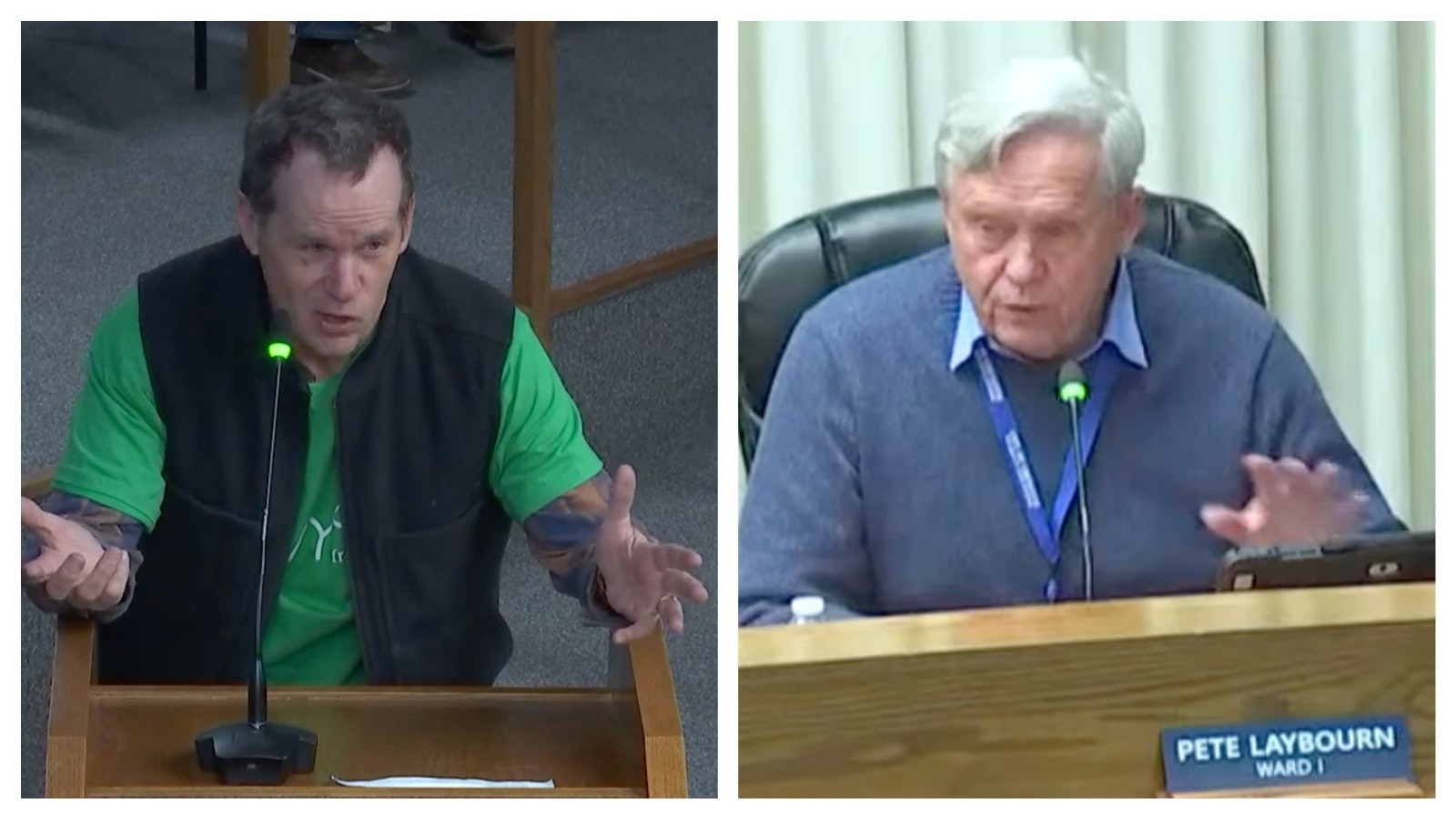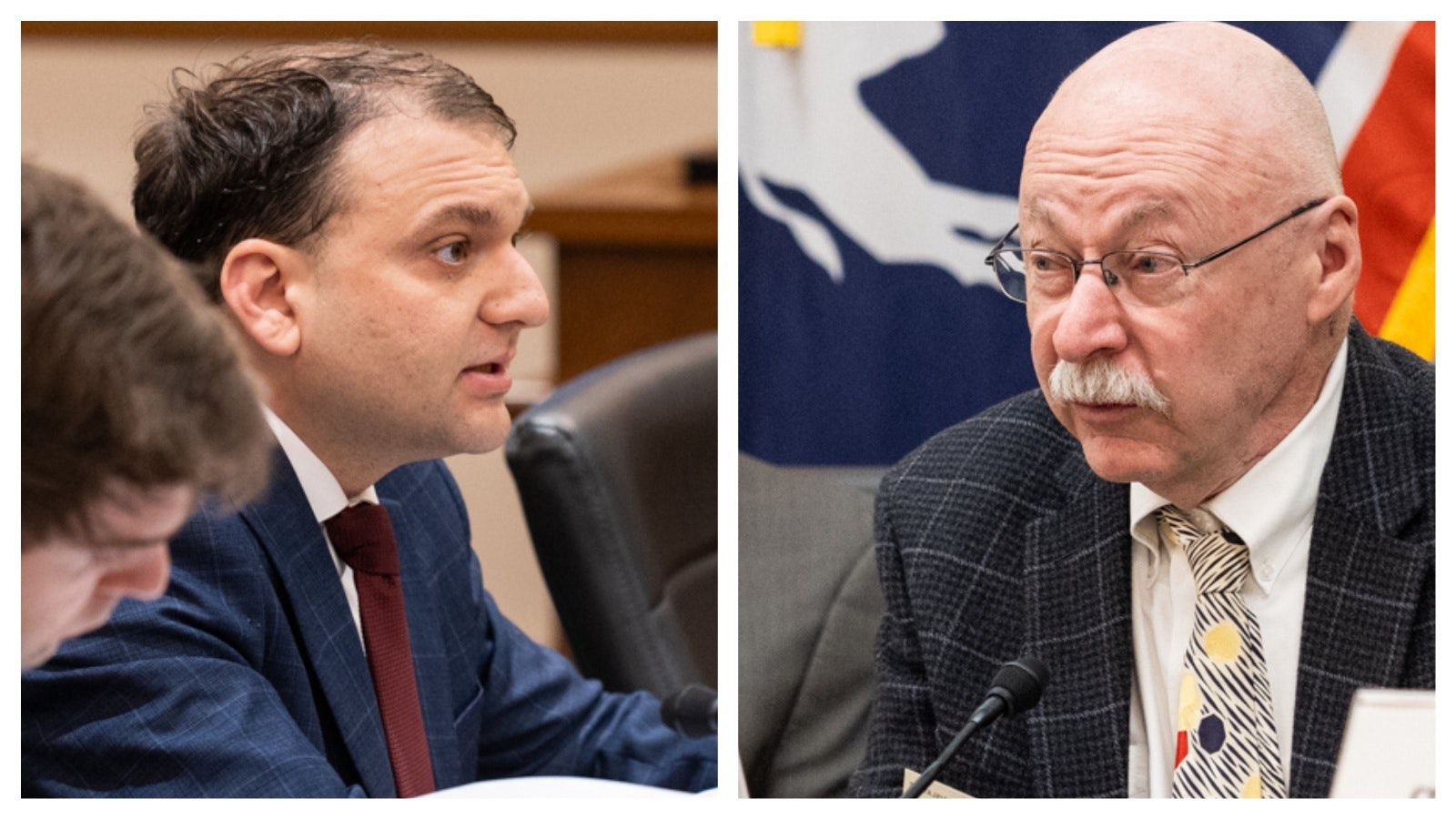The Wyoming Legislature will begin its supplemental budget negotiations in the coming week, with the Senate spending $109 million more than its lower chamber colleagues so far, according to early estimates.
The supplemental budget is designed to add expenditures as an update to the biennial budget, which was crafted last spring.
Initial analysis shows the Senate added $228 million to its budget since Joint Appropriations Committee negotiations ended last month, putting it around $680 million total. The House added $119 million.
The House added five employee positions while the Senate added 35.
The House budget passed on a 43-14 vote with Reps. Landon Brown, R-Cheyenne, Andrew Byron, R-Jackson, Elissa Campbell, R-Casper, Ken Chestek, D-Laramie, Bob Davis, R-Baggs, Julie Jarvis, R-Casper, Ivan Posey, D-Fort Washakie, Karlee Provenza, D-Laramie, Daniel Singh, R-Cheyenne, Liz Storer, D-Jackson, Clarence Styvar, R-Cheyenne, Jacob Wasserburger, R-Cheyenne, Cody Wylie, R-Rock Springs, Mike Yin, D-Jackson, voting against it.
The budget passed on a 28-3 vote in the Senate with Sens. Cale Case, R-Lander, Bob Ide, R-Casper, and Troy McKeown, R-Gillette, voting against it.
There was a $900 million difference between both chambers after they passed their biennial budgets in 2024 and a $30 million difference between the two chambers for the last supplemental budget in 2023.
The Details
Both chambers came in lower than Gov. Mark Gordon’s $692 million supplemental budget request.
They both added some support for local governments and schools in the event that a major property tax relief bill passes into law. Senate File 69 appears to be the lead horse at this juncture, a bill that would exempt 50% of property taxes with no backfill.
Each chamber also created its own plan for wildfire damage relief for the historic fires that hit Wyoming this summer with substantial differences between the two.
Rep. John Bear, R-Gillette, chairman of House Appropriations, presented the budget on the House floor, appealing to his Wyoming Freedom Caucus members on how to vote on many amendments, usually but not always getting his way in the chamber where his group holds a majority.
On Thursday, Bear wrote a guest column in Cowboy State Daily where he accused other lawmakers of acting like lobbyists for different state agencies, a highly unprecedented move for a co-chair of the Joint Appropriations Committee to make.
“These lobbyist-legislator hybrids have made it clear who they represent, and it’s not the people– it’s the government,” Bear wrote. “While conservatives are accused of voting according to mysterious yet undefined directives, these lobbyist-legislators vote how they’re instructed by government associations and even admit to doing so during debate.”
Rep. Karlee Provenza, D-Laramie, firmly pushed back against this sentiment, saying she’ll continue to fight for her community regardless of what people call her.
“If those of us who care about our communities and honest governing are ‘lobbyists,’ then what should I call the folks who get told how to vote by the author of this column?” Provenza said, questioning Bear’s op-ed.
“Claiming that I am anything but a representative of my district because I stood up for young mothers or ranchers who were severely impacted by fire demonstrates that the author doesn’t value different ideas in Wyoming," she said.
Bear explained to Cowboy State Daily he believes other legislators have been “fighting him like the Dickens” on making spending cuts.
“It’s more and more government spending, it’s more and more, got to have it now,” Bear said.
Others have argued that the cuts Bear and the Freedom Caucus have supported for Wyoming will pull the rug out from stable funding sources that supported education and other services for decades.
Byron said it’s a matter of simply identifying problems and trying to solve them.
“It’s what we’re elected to do,” he said.
Rep. Bob Wharff, R-Evanston, told Cowboy State Daily he sees both sides of the issue but believes state officials often don’t understand the cuts everyday Wyomingites have had to make to their own personal budgets because of tax increases.
“I told people I’d do what I could to give them a tax cut and so the idea is to give it to them, not hurt local government,” he said.
Bear pointed out on Thursday that the Senate didn’t provide a backfill on its major property tax bill yet spent more money than the House in its budget.
“They do have a backfill there, they’re just sticking it to local governments,” he said. “You can’t sustain tax cuts and increases in spending at the same time.”
Property Tax Backfill
Both the House and the Senate considered various proposals to help local governments and schools that will lose money as a result of property tax cuts.
The Senate considered a 25% backfill for the state’s eight lowest counties in assessed valuations, a $12 million commitment. The amendment was rejected on a 20-11 vote.
Sen. Gary Crum, R-Laramie, questioned why eight counties would be the benchmark and why assessed value was the only methodology used.
“This wasn’t done fair to me across the board, we’re picking winners and losers,” he said.
The House passed a similar proposal for a 75% backfill for the eight poorest counties that would be supported with a $72 million appropriation. This appropriation would also include a backfill for special districts across the state like hospital, community college, EMS and fire districts.
“Nothing we’ve done has been perfect, but this helps make it better,” Rep. Ken Pendergraft, R-Sheridan, said in support of the proposal.
A number of legislators who opposed the 50% tax exemption that passed the House also spoke in passionate opposition to the backfill proposal.
Rep. Julie Jarvis, R-Casper, called out those who supported a property tax exemption bill the House passed in January to cut taxes by 50%.
“You want to do this for the next two years, let the people of Wyoming feel what you just did,” Jarvis said. “But don’t you dare touch the savings account that is the backup plan when people didn’t get reelected as planned.”
Jarvis also brought an amendment on Friday that attempted to give Wyoming teachers a 2% raise after a 4.7% raise was already slashed from the House budget.
She mentioned how Wyoming students are still scoring well above the national average for math and reading scores. There’s a belief among many conservatives in Wyoming that the state isn’t getting its money’s worth based on how much it's spending.
“They aren’t failing us, we are failing them,” Jarvis countered.
The amendment failed.
Sen. Barry Crago, R-Buffalo, successfully passed an amendment in the Senate on a 18-13 vote to provide a $15 million backfill for special districts that lose funding as a result of property tax cuts made during the legislative session. This backfill would last through June 2026.
Sen. Larry Hicks, R-Baggs, said the Legislature has always stood up for needs around Wyoming, mentioning an amendment passed earlier in the day to provide $100 million for wildfire relief grants.
“The reason we took care of that is because we take care of our neighbors,” Hicks said.
Sen. Bill Landen, R-Casper, spoke in favor of the amendment and warned that fire needs could be high this summer based on the dry winter that Wyoming has had so far.
Sen. Tara Nethercott, R-Cheyenne, has opposed backfills this session and asked if the Legislature is prepared to offer long term backfill funding for local communities.
“I just want to be mindful and make sure the message is heard, this is not a long term and sustainable plan for the long term,” she said.
Sen. Cale Case, R-Lander, went even further with this sentiment, saying the voters have asked for lower property taxes based on who they elected into office.
“The people have spoken … we have to see where this goes but they’ve spoken and we have to respect it,” he said.
Wildfire Relief
Gordon had originally proposed a $130 million recovery request for grants that could be provided to Wyoming residents who suffered property damage as a result of the wildfires this summer.
Both the Senate and the House considered a proposal to alter wildlife relief to a split program where $40 million is devoted to grants for rehabilitation of land and $60 million loans. Earlier on Friday, the House took up this proposal, which Bear opposed.
The Senate moved away from this proposal on Friday approving a $100 million grant program to be managed by the state.
“When you go out and treat it that way, it will save not tens, but hundreds and millions of dollars,” Sen. Ogden Driskill, R-Devils Tower, said in support.
Crago also brought the grant proposal, arguing that very few people would want or be able to take advantage of a loan program.
“No one’s going to use it,” he said. “If you already have loans, unless your ranch is paid off, you’re probably not going to be able to use this.”
After the Senate made its decision, Bear attempted to bring back the consideration in the form of a $130 million loan program, arguing that it could be an effective bargaining chip when the two chambers negotiate for a final budget in the coming weeks. This proposal died on a 29-29 vote on the second try.
Leo Wolfson can be reached at leo@cowboystatedaily.com.





